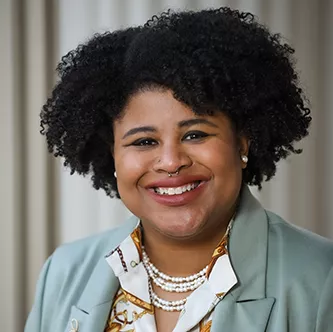About Me
In undergrad, Upton-Azzam became fascinated with learning about Black movements after taking an African American Studies course “History of Injustice” course in which they mainly covered the history of the civil rights movement. She began asking questions about how it is that Black people mobilized against racial inequality and became enthralled with the answers that she found. She was amazed by the resilience of Black people in the face of segregation, violence, and disenfranchisement. In her sophomore year, Upton-Azzam became interested in sociology after taking the courses “Social Problems” and “Sociology of Poverty” that taught her to see inequality through a sociological lens. Between her African American Studies and Sociology courses, she learned how to think differently about society and gave her a deeper understanding of racial inequality.
When Upton-Azzam was about to graduate, she asked her advisor what she should do next and she suggested that I go to graduate school. So she did. After the first year in her master’s program, she spent a year in AmeriCorps doing community engagement and out of school programming in Columbus, Ohio. From there, Upton-Azzam went into a PhD program at the University of Minnesota where she decided that she wanted to study Black women’s organizations and Black radical movements. Upton-Azzam graduated with my PhD in 2021 and her dissertation is titled Roses and Revolution: Black Sororities’ Interactions with the Black Feminist Movement 1968-1980. She began working at Susquehanna University in Fall 2021.
Currently, Upton-Azzam’s research focuses on Black radical movements, Black organizations, and Black feminism. Her book, The Power We Need Right Now: Black Sororities and Radical Black Movements of the 1970s, will be published in February 2026. The book project examines Black Sororities’ engagement with the Black Power and Black feminist movements. She is also currently studying the anti-lynching movement.
